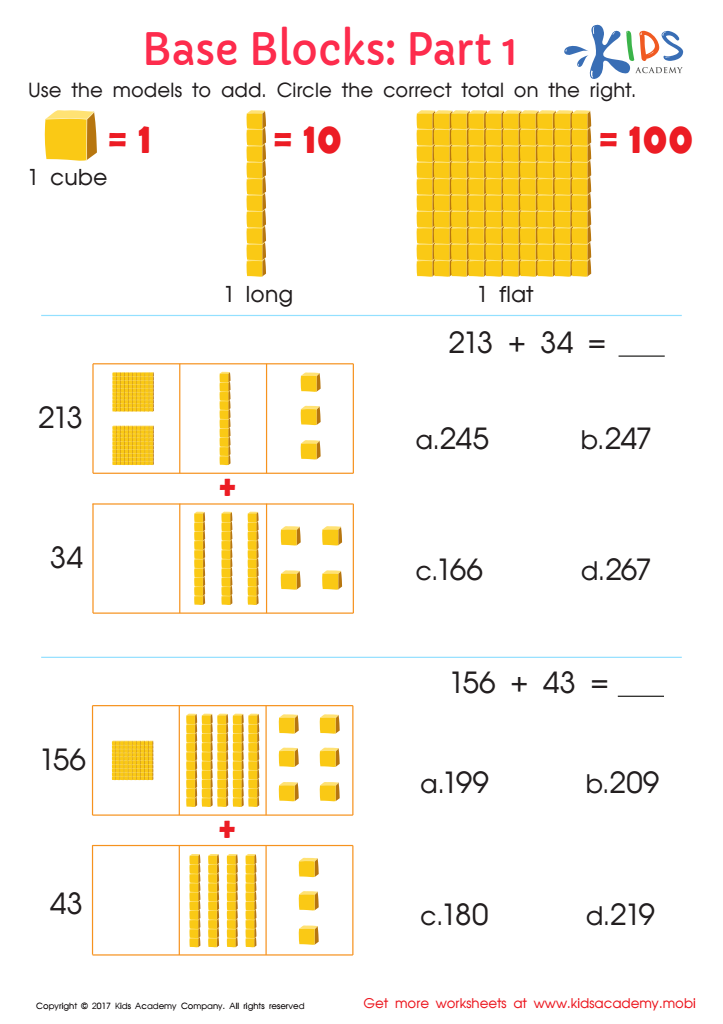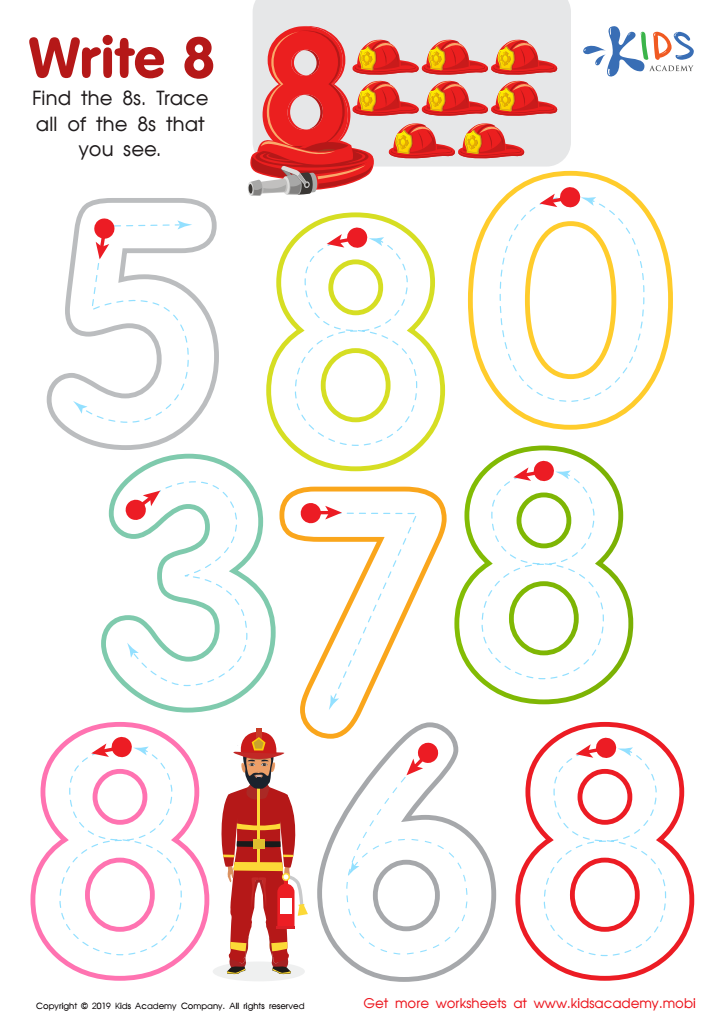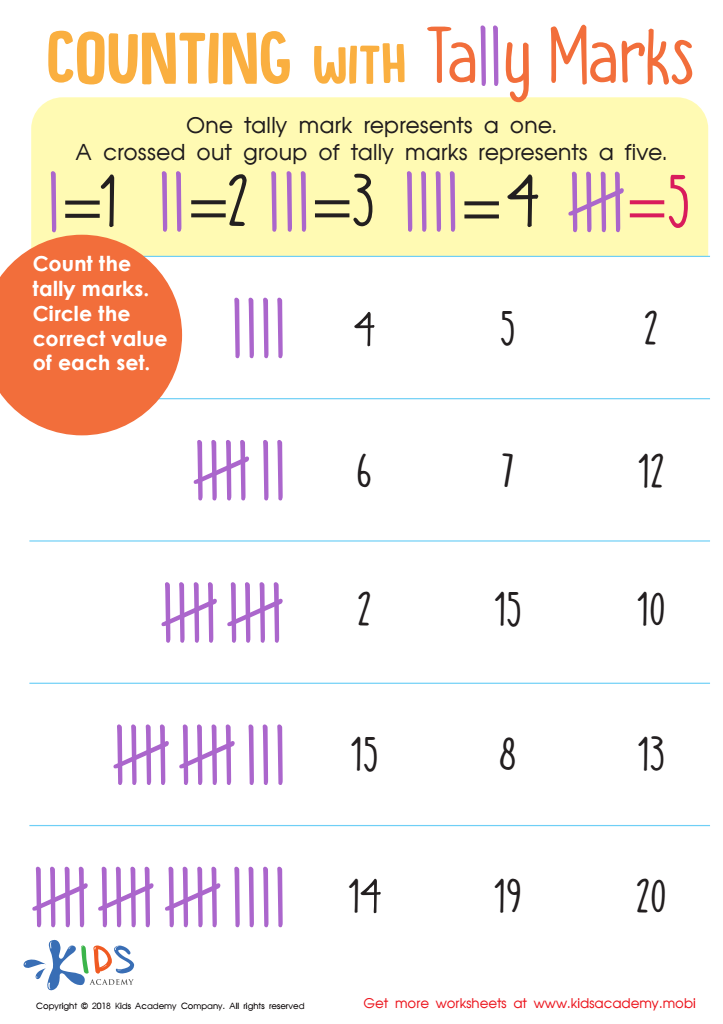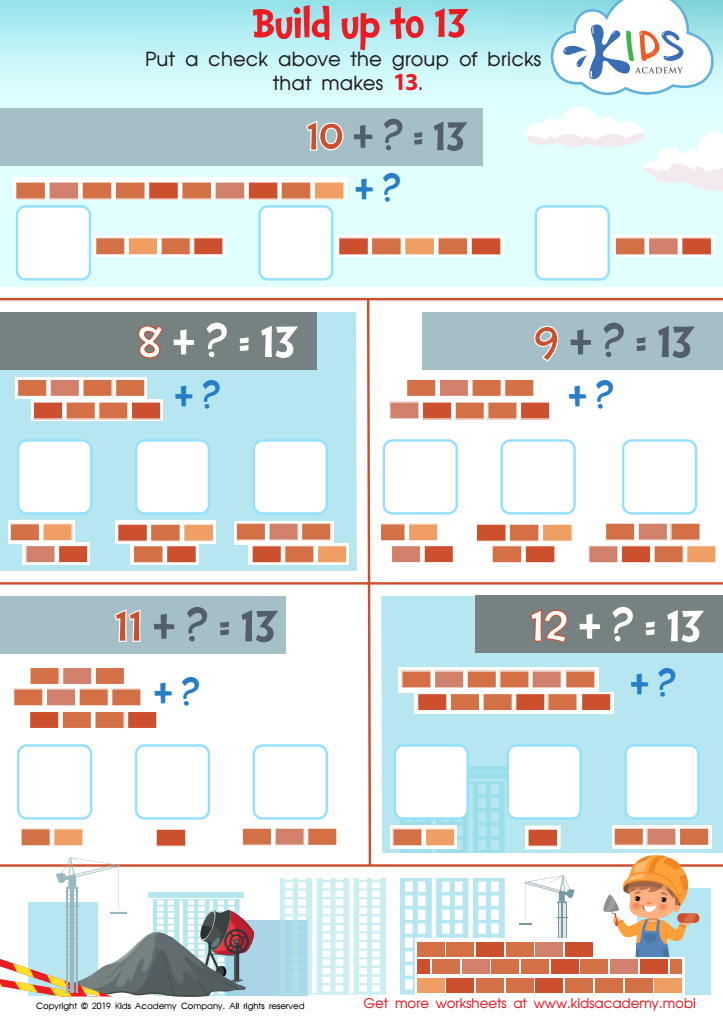Number representation Math Worksheets for Ages 3-9
4 filtered results
-
From - To
Discover our unique "Number Representation Math Worksheets for Ages 3-9", designed to make learning fun and engaging! Tailored for early learners, these worksheets help children grasp fundamental mathematical concepts, including number recognition, counting, and basic arithmetic. Through colorful illustrations and interactive activities, young students can build a strong number sense, enhance their problem-solving skills, and develop confidence in math. Perfect for both classroom and at-home practice, these worksheets provide a solid foundation for future math success. Encourage your child's mathematical journey with our expertly crafted resources that cater to various developmental stages and learning styles.


Base Ten Blocks Worksheet: Part 1


Write 8 Worksheet


Counting with Tally Marks Worksheet


Build up to 13 Worksheet
Understanding number representation in early childhood is vital as it lays the groundwork for all future mathematical learning. Numerical comprehension influences cognitive development, problem-solving skills, and logical thinking. For children ages 3-9, learning how numbers work sets the stage for more complex concepts they will encounter later in education.
Firstly, number representation helps children grasp the fundamental concept that numbers signify quantities and can correspond to real-world objects. This understanding is crucial for everyday tasks like measuring, shopping, or even telling time. Elementary activities such as counting objects, recognizing written numerals, and associating them with corresponding quantities contribute to their ability to handle practical, everyday situations with confidence.
Secondly, a solid foundation in number representation aids in developing pattern recognition and logical reasoning. These skills are crucial across all academic domains and life scenarios. Teaching young children these concepts in a supportive and engaging environment encourages a positive attitude toward math, reducing anxiety or fear related to the subject.
Moreover, early number skills are predictive of later academic achievement. Children who start school with strong numerical abilities generally perform better in both math and literacy. Parents and teachers who prioritize these skills not only boost a child's confidence and competence in mathematics but set them on a path toward academic success and lifelong learning.
 Assign to My Students
Assign to My Students
















